The saying goes that the court is the hope of the common man. A lot of people familiar with the court processes (the insiders) will agree. A lot of people too, especially from the outside, have their reservations about that claim, especially in a third world set up like Nigeria, with social structures that leave a lot to ask for. Regardless, the court is a place/ medium where/ through which justice is interpreted and implemented as stated in the set constitutions of any given place. In my opinion, it is a place where Rights and Impunity are argued from either sides of interest, referencing to the law. For this reason, it is a "home" to litigants and persecutors as well. It is their workstation.
This post is about the court from a very normal citizen point of view, and it's targeted at that demography. The professionals may find it simplistic and obvious, the everyday Akpan would find it informative. See it as background primer knowledge to build on.
Yesterday was my most recent visit to the courthouse. I had no legal case to make or defend, but I was persuaded by a friend, a legal practitioner to attend the session. I conceded to the appeal (I already am sounding like a member of the bar). So we set out for a Magistrate Court, driving on a beautiful dual-carriage road for about 25 minutes. Unlike other times I made non-thorough attendances just to listen to arguments, I this time made some inquisitions and observations, and even stole some picture opportunities before the court sat. Let me share them in today's post.
HIERARCHY OF THE COURT
In Nigeria, the court hierarchy system is a progressive one. Each court at a level has its jurisdictional responsibilities and limitations. And there is a system of referral to the appropriate court as regards these limitations. This means that a court will only try a case that it has the level jurisdiction over. There are other considerations though.
Here is the hierarchy of the court or the Nigeria Judiciary system in a descending order:
- The Supreme Court of Nigeria
- The Court of Appeal
- The Federal High Court
- The High Court of the Federal Capital Territory(FCT)/ States High Court
- Sharia Court of Appeal
- Customary Court of Appeal
- Magistrate Courts and District Courts
MY VISIT
It was a Magistrate Court I made visit to. I reside in the Southern region of Nigeria where these courts are known and called "Magistrate Courts," whereas in the Northern region they are known as "District Courts". But the jurisdiction and responsibilities are the same, as enshrined by the various State Houses of Assembly.
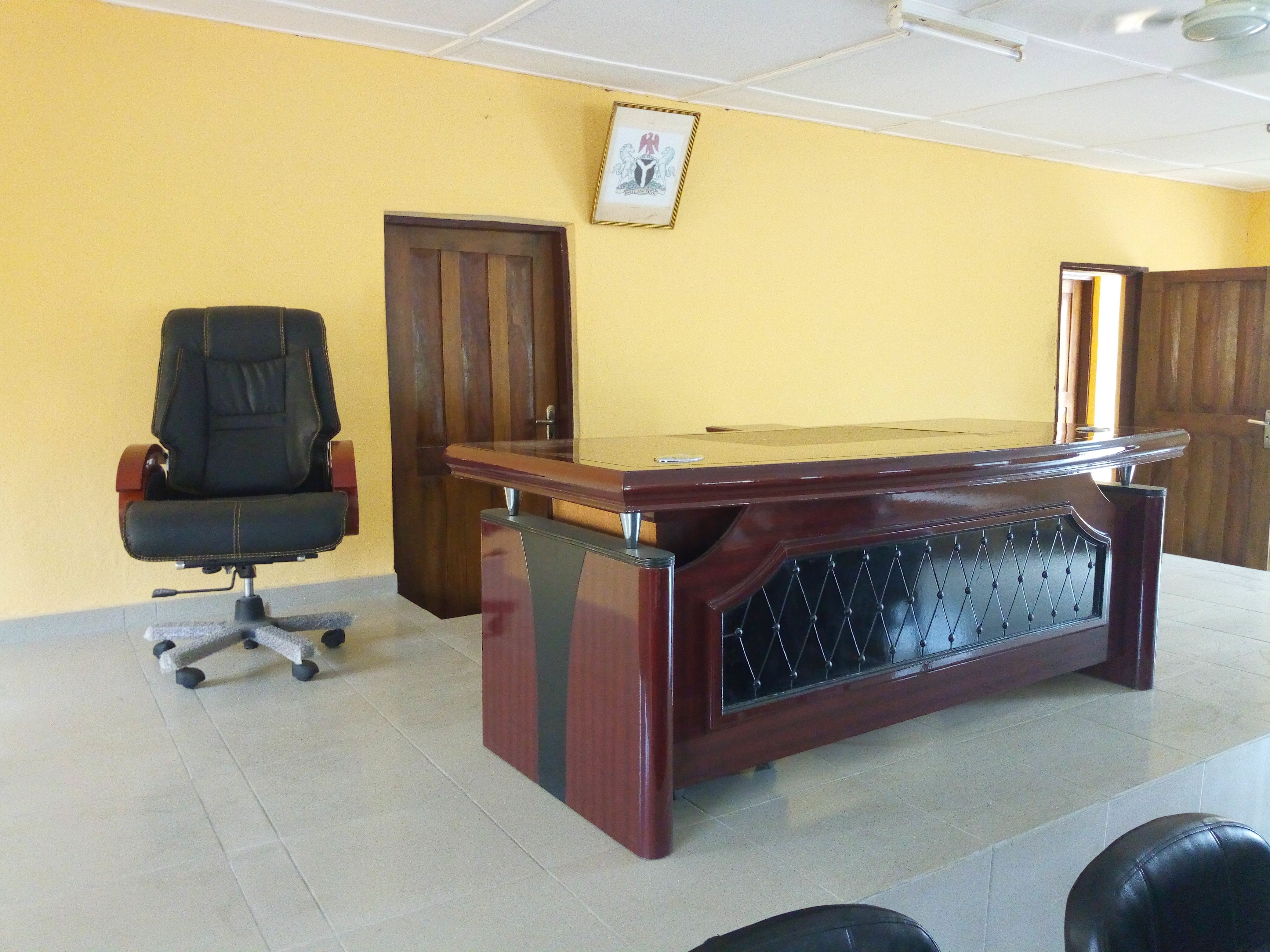
The "Bench" where the Magistrate sits
The court is headed by a Magistrate who is appointed through the State Judiciary and approved by the Executive Governor of the state. There is the Registrar and other members of what is like the court secretariat. But these are not partakers in the litigation, they only serve administrative functions.
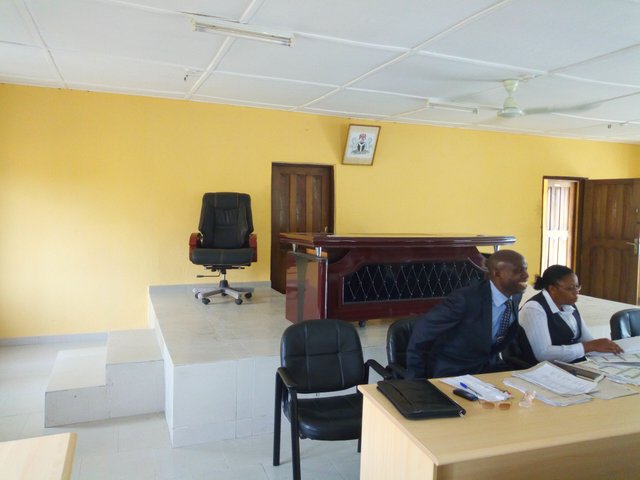
The clerk seated just below the Magistrate's. They carry out the clerical works to assist the Magistrate
There are the court clerks seated just below the Magistrate, who will announce the entry and exiting of the Magistrate. During this time, everyone in the court has to be standing until the Magistrate has seated or is out of the court. They also call cases, make interpretations if there is a case of a duality in language, example where a witness testifies in the local vernacular. They suggest convenient dates for next adjournment for the litigants since they make the documentations.
We also have the court police, whose responsibility is to maintain peace and order in the court and provide the Magistrate security while s/he's seated in court. I also learnt that the court Police is usually same gender as the Magistrate.
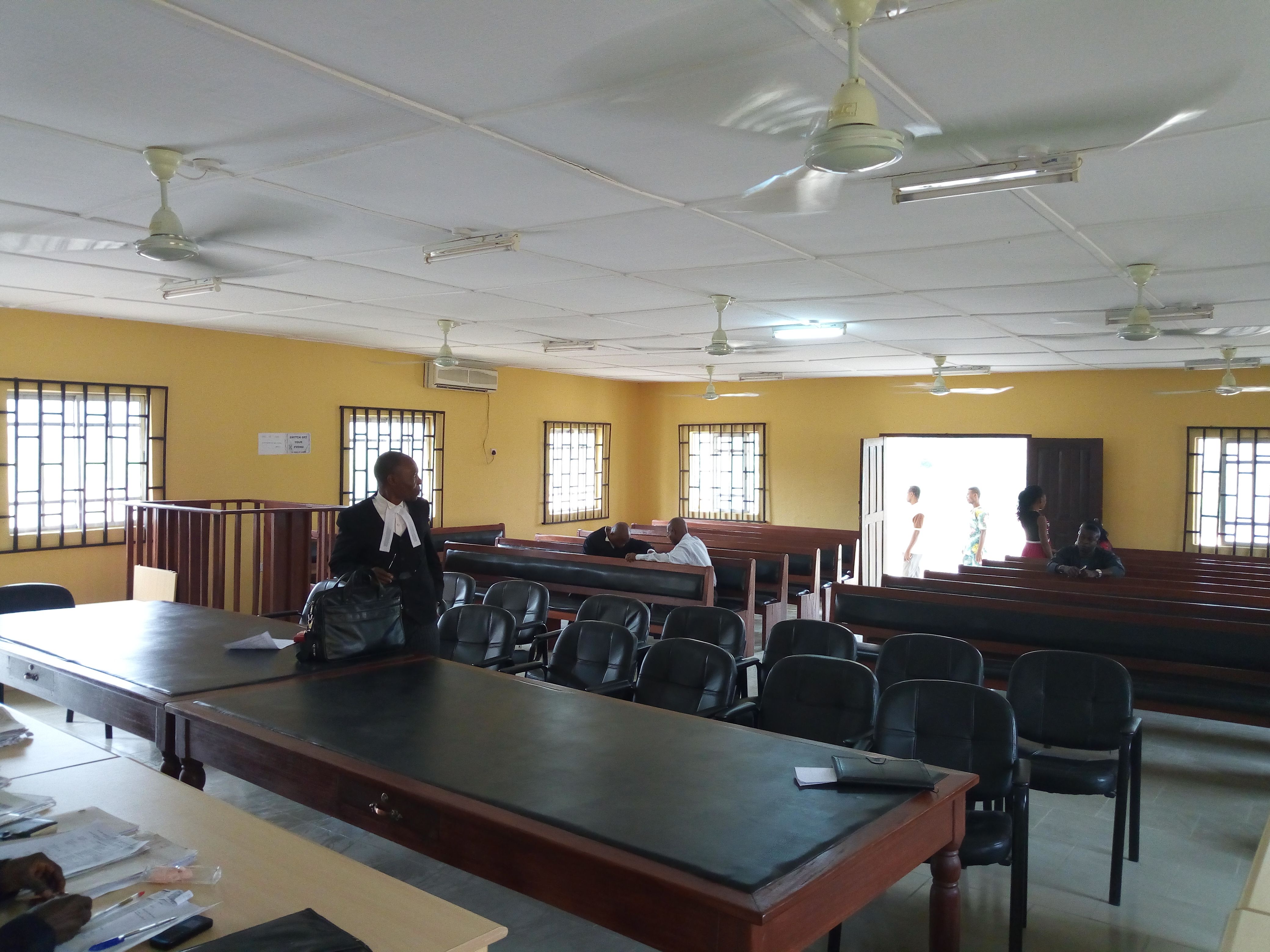 A barrister at "The Bar"
A barrister at "The Bar"
There is "The Bar" where the barristers sit. I noticed also that the barristers' cases are called according to how early they were called to bar. That is, who became a lawyer first has priority. So the more senior barristers were taking their cases before their junior colleagues. Part of The Bar is where the prosecution [the police and other public prosecutors] also stay. Typically in a Magistrate Court, criminal matters are the predominant cases tried, usually after arrests by the police. So often times the police are the prosecutors. Below is an image of what this part of The Bar looks looks like.
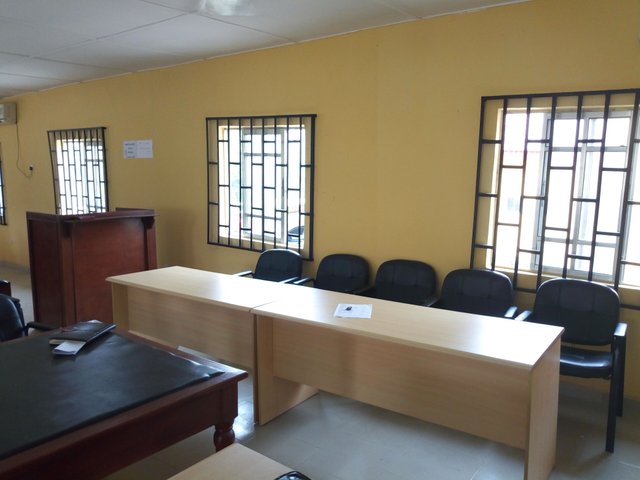
Listeners and observers sit on long, cushioned, comfortable benches arranged as church pews, to watch the process and session. They are mostly made up of friends and families of either the defendant or plaintiff.
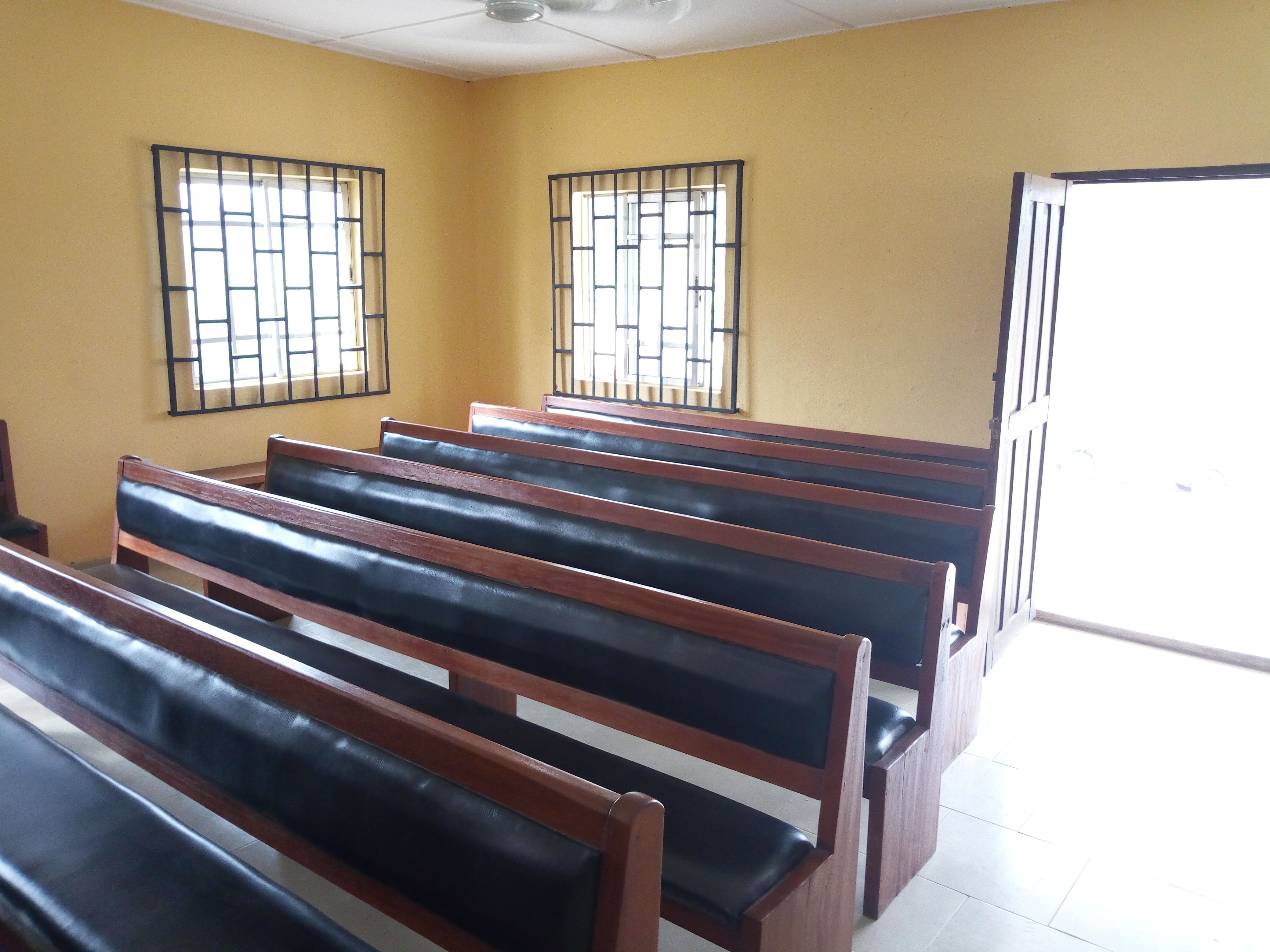
The long, cushioned benches for observers
Yes, it is required of you to take a bow before entering or exiting the courthouse when the Magistrate is still seated. And the women are required to cover their hairs while in court.
The plaintiff gives his testimony in the "Witness stand" while the accused in the "Dock". When the accused is in the dock, it remains closed until hearing on his matter is concluded, then he is guided out of the dock by the court police.
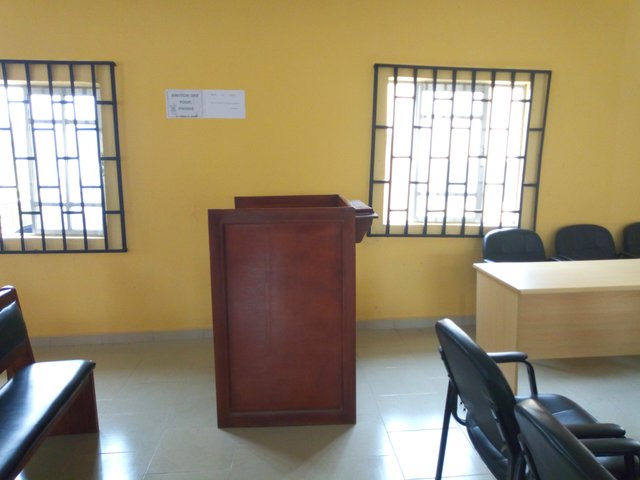
The witness box
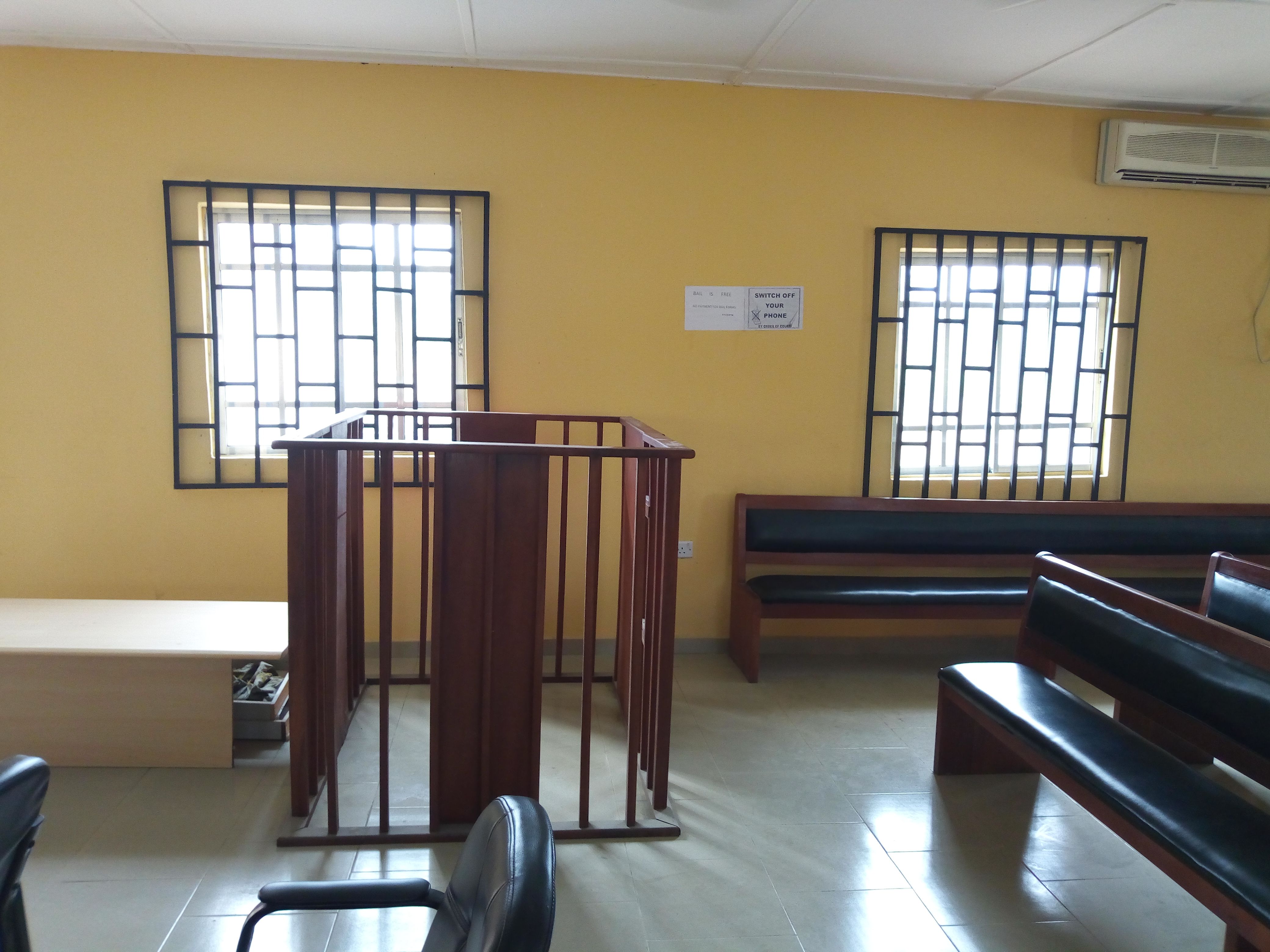
The dock
I joined in the chorus, "As the court the pleases" whenever the Magistrate gave a ruling. I noticed the Magistrate wrote down by herself everything the litigating parties said: the testimony and witnessing, everything. She would caution a barrister or anyone speaking to talk in bits, to allow her write.
My friend, the barrister that persuaded me to attend the court, took his case after two cases had been taken. He spent a short time on it since it was a report of settlement. It was a very mild situation as both parties had little to say. I would go another day to actually see my friend make an argument. We already have another invitation to that effect.
We left afterwards. It was a good experience and I had fun listening to arguments and citations from the constitution.
You can share your court experiences.
All images are original.
That was a good rundown and very informative. Did you mean to say in "descending order?" That is regards your listings of the hierarchy of the court?
Downvoting a post can decrease pending rewards and make it less visible. Common reasons:
Submit
thank you @misterakpan for taking your time to read this. The listing order has been corrected. have you any court experience? i'd like to read
Downvoting a post can decrease pending rewards and make it less visible. Common reasons:
Submit
For whatever reason I have never been in a court, and I am just getting to learn new things from your post. Maybe one day I should try that. And, I don't agree the judiciary is the hope of the common man in Nigeria. They lick the arses of the authorities. Besides, I hate those robes the judges adorn themselves with. Victorian England. Colonization shackles.
Downvoting a post can decrease pending rewards and make it less visible. Common reasons:
Submit
You know one must not be accused before being in the courthouse; I have never been accused. I am glad you learned something. Even if they 'lick' whose 'arses'...the court is still an institution that defends the right of the people. Ask of the robes and the wig....I should into the essence.
Downvoting a post can decrease pending rewards and make it less visible. Common reasons:
Submit
You know one must not be accused before being in the courthouse; I have never been accused. I am glad you learned something. Even if they 'lick' whose 'arses'...the court is still an institution that defends the right of the people. Ask of the robes and the wig....I should into the essence.
Downvoting a post can decrease pending rewards and make it less visible. Common reasons:
Submit